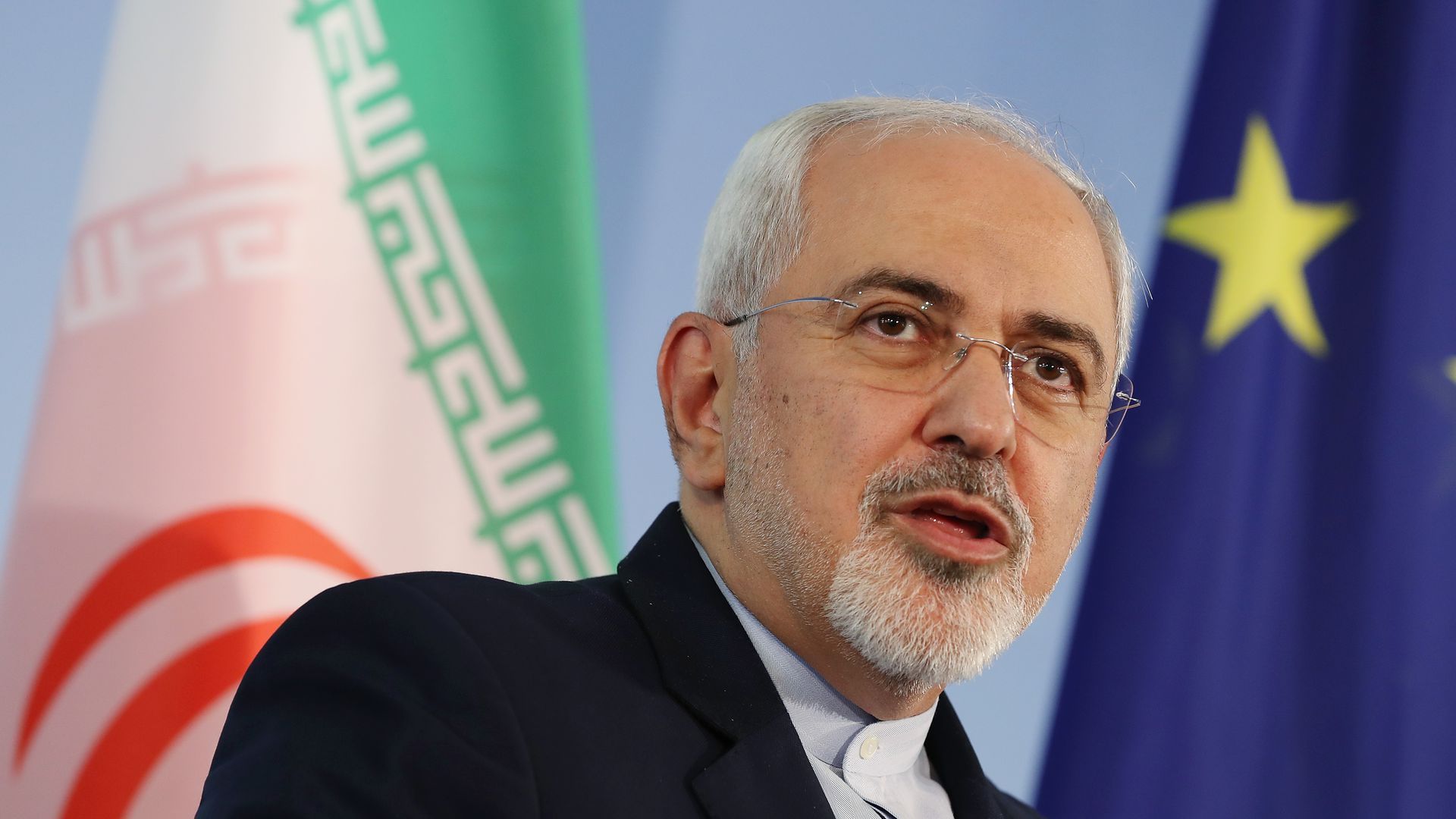
On Saturday afternoon, I asked Iranian Foreign Minister Mohammad Javad Zarif whether he believes that Iran's enemy, the state of Israel, will exist for a long time to come.
What he's saying: "We believe the policies that are being pursued [by Israel] are not sustainable," Zarif told me and a small group of reporters who met with him at the Iranian Mission in New York.
Later in the conversation, a reporter asked Zarif whether he could acknowledge any mistakes Iran has made. He said no government would answer that question, and instead he described his ideal future for the region.
- Zarif described an idyllic regional neighborhood, one that "doesn't have a dominant power." It would be peaceful, with guaranteed security for all nations, including the Gulf States and Iraq.
"What about Israel?" I asked. Does it have a place in his vision of the region?
- "I decide not to" include Israel in this region, he replied.
- Asked whether he might entertain Israel's right to exist in the context of a broader "Middle East" region, he replied that the concept of a region "is a construct. ... The region I am talking about is the region in which I live."
Why this matters: Zarif’s comments came after the UN General Assembly exposed a growing split between America and Europe over the question of Iran.
- At the UNGA, the Europeans doubled down on their commitment to the Iran nuclear deal by announcing they would set up a special payment channel to let European companies keep dealing with Iran while ducking U.S. sanctions.
- Meanwhile, American and Israeli leaders spent the week torching Iran — from John Bolton warning Iran "we will come after you" to Israeli Prime Minister Benjamin Netanyahu telling the UN that his intelligence agents had found a "secret atomic warehouse" in downtown Tehran.
Zarif said he was weaving together a global coalition to resist U.S. sanctions and secure a market for Iranian oil, batting off questions about Hezbollah and human rights in Iran. He also said Netanyahu’s “secret atomic warehouse” was actually a laundromat for Persian rugs.
- He wouldn't let U.S. journalists verify that claim, he said, as a matter of sovereignty.
- Would he invite the International Atomic Energy Agency (IAEA) to do the same? Zarif said the IAEA hadn't asked to inspect that factory and they wouldn't because they "know better."
What's next? Zarif said Iran could pull out of the nuclear deal if the Europeans don’t fulfill their commitments. And he didn't close the door to a meeting, one day, with Trump. But he didn't seem bullish about that prospect, adding that the Iranians had not requested a meeting with...

